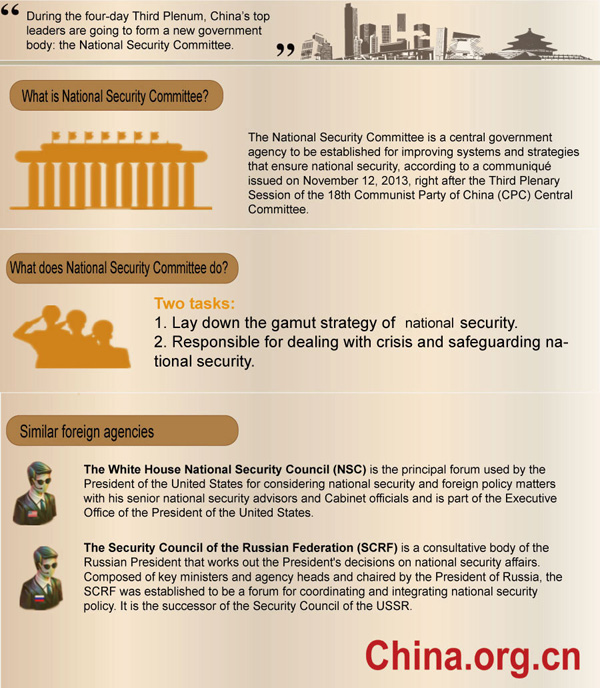Will Europe benefit from China's new grand strategy?
- By Dan Steinbock
 0 Comment(s)
0 Comment(s) Print
Print E-mail China.org.cn, November 21, 2013
E-mail China.org.cn, November 21, 2013
Chinese grand strategy as European opportunity
During the Third Plenum, Beijing also instituted a national security agency to co-ordinate efforts of various government departments covering intelligence, the military and foreign affairs.
Emulating the US National Security Council (NSC), the new agency can also be seen as a response to the US National Security Agency’s (NSA) extensive cyber spying globally.

Naturally, Beijing, as Washington’s strategic partner, and Brussels, as Washington’s strategic ally and Nato member, respond in different ways to such challenges. However, both have been perplexed by the disclosures of the ongoing debacle created by NSA leaker Edward Snowden.
What Euro-Chinese relations need is broader and deeper co-operation, which, in turn, has potential to support Chinese reforms and innovation.
In the past, foreign investment was a one-way street, with foreign multinationals investing in China. That era is now history. Between 2006 and 2009, Chinese investment into Europe tripled. And it triple again from 2009 to 2011. Last year, Chinese investments in Europe totalled $12.6 billion, up 21 percent over 20011.
At a time when the Eurozone is coping with minimal growth, possibly a lost decade, Chinese investment is a vital vote of confidence for Europe’s longer-term future.
Indeed, China’s new grand strategy - market-driven economic reforms coupled with deeper regional integration - is very much in the European interest.
If Brussels, European governments and businesses respond to Chinese reforms only partially and narrowly, they risk falling behind even further in economic growth and political influence.
If, however, they seek to respond fully and broadly to Chinese reforms, the bilateral relations have potential to move to an entirely new stage in the future.
Dr. Dan Steinbock is the research director of international business at the India, China and America Institute (USA) and a visiting fellow at the Shanghai Institutes for International Studies (China).
Adapted from www.euobserver.com To read the original, please visit http://euobserver.com/opinion/122138





